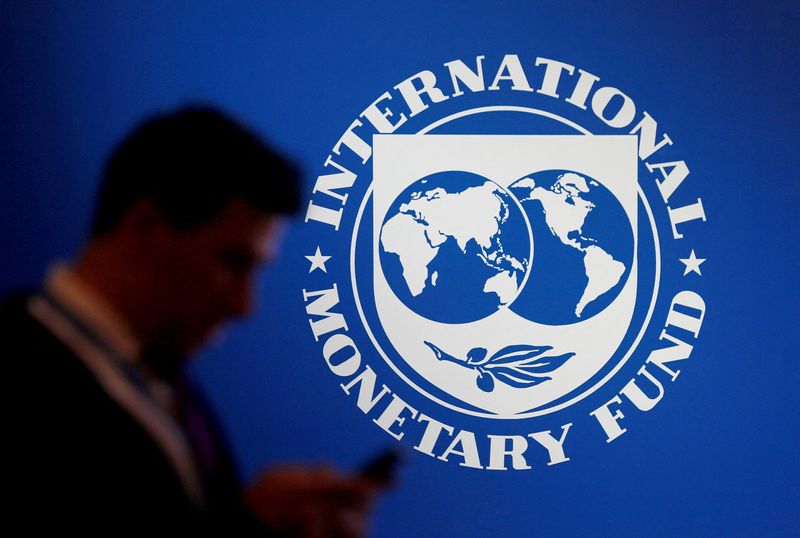IMF revises Congo’s 2022 growth up to 8.5%, rebel conflict a concern
2023.02.15 12:19

© Reuters. A participant stands near a logo of IMF at the International Monetary Fund – World Bank Annual Meeting 2018 in Nusa Dua, Bali, Indonesia, October 12, 2018. REUTERS/Johannes P. Christo/File Photo
DAKAR (Reuters) – The Democratic Republic of Congo’s GDP growth has been revised upwards to 8.5 percent in 2022 on the back of stronger production in the mining sector, the International Monetary Fund (IMF) said on Wednesday.
The Fund, which had forecast GDP growth at 6.6 percent in 2022 in a December report, said in its latest report that preliminary data had shown “significantly stronger real GDP growth in 2022 than previously anticipated.”
Following a week-long visit by its staff to Kinshasa, the IMF projected growth at 8 percent this year but warned of downside risks from the armed conflict to the country’s east.
A rebel group known as the M23 staged a major offensive in east Congo last year, adding to decades of militia violence in the central African country’s mineral-rich provinces.
Mineral wealth, including vast reserves of , cobalt and gold, has stoked conflict between militias, government troops and even foreign invaders.
It added that mining production, which grew at around 20 percent, was stronger than expected and more than compensated for a downward revision of non-extractive growth to 3.2 percent, down from 3.9 percent.
Annual inflation reached 13.1 percent at the end of 2022 on account of higher food, energy, and transport prices, it said.
Uncertainty ahead of Congo’s general elections in December, the continued effects of the war in Ukraine and adverse terms-of-trade shocks could also affect growth forecasts, it said.
Preliminary data suggests that Congo’s current account deficit widened last year due to strong import growth and worse terms of trade, although the central bank reported more gross international reserves than initially projected.
But the overall fiscal balance for 2022 is estimated to have deteriorated due to arrears payments and increased spending on insecurity in the east, the IMF said.








